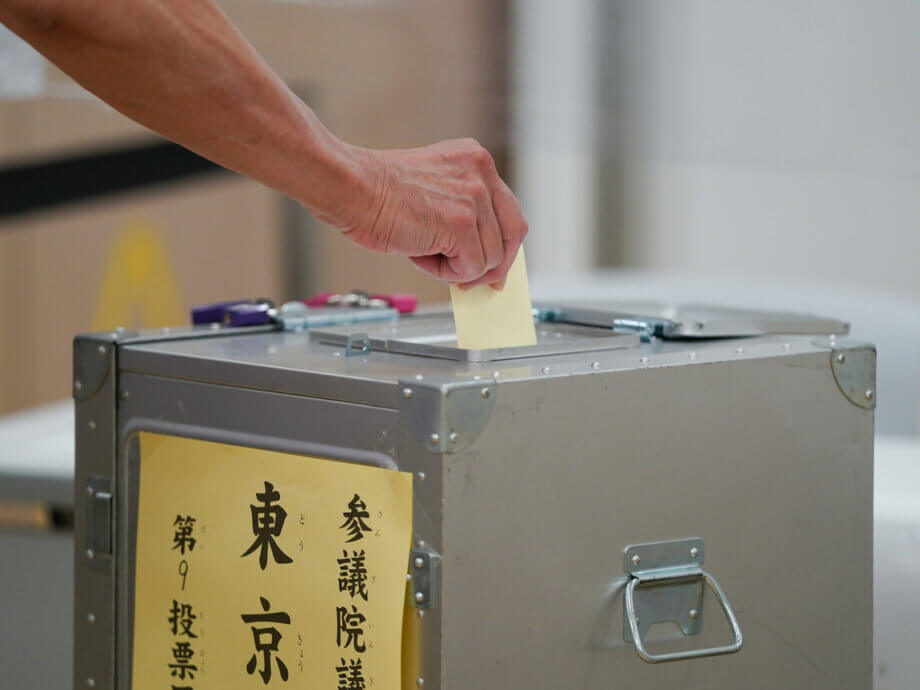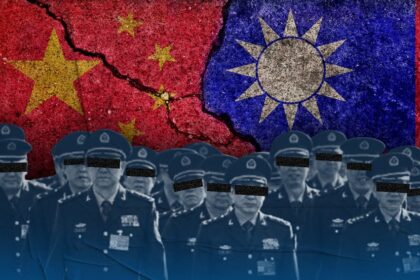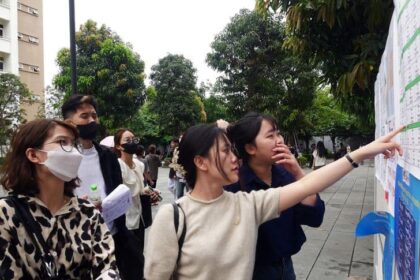The Digital Revolution: Social Media’s Growing Role in Japanese Elections
In recent years, social media has rapidly transformed the landscape of political campaigning and voter engagement in Japan. Once dominated by traditional grassroots efforts and established media, Japanese elections are now increasingly shaped by the dynamics of online platforms. This shift has brought both new opportunities and significant challenges, raising questions about the future of democracy in the country.
- The Digital Revolution: Social Media’s Growing Role in Japanese Elections
- From Grassroots to Hashtags: How Campaigning Has Changed
- Case Studies: Social Media’s Impact on Recent Elections
- The Double-Edged Sword: Misinformation and Echo Chambers
- Regulatory Challenges: Balancing Free Expression and Election Integrity
- The Attention Economy: Algorithms, Advertising, and Voter Choice
- Generational Shifts and the Decline of Traditional Intermediaries
- Safeguarding Democracy: The Road Ahead
- In Summary
While political parties scramble to adapt to the digital age, concerns about misinformation, polarization, and the integrity of the electoral process have come to the forefront. As Japan prepares for key elections, the debate over how to regulate and respond to the influence of social media is more urgent than ever.
From Grassroots to Hashtags: How Campaigning Has Changed
For decades, Japanese politicians relied on face-to-face interactions, local festivals, and support from industry groups to build their voter base. However, the rise of the internet—and especially social media—has upended these traditions. Politicians like Taro Yamada, a member of the Liberal Democratic Party (LDP), have demonstrated the power of digital outreach. Yamada, who won approximately 540,000 votes in the 2019 House of Councillors election, attributes much of his success to a social media-focused strategy.
Yamada’s approach is emblematic of a broader trend: candidates now use platforms like YouTube, X (formerly Twitter), and TikTok to livestream speeches, share campaign events, and connect directly with voters. These tactics offer immediacy and authenticity, resonating particularly with younger and disillusioned voters who feel alienated from mainstream politics.
In the 2024 House of Representatives election, parties such as the Democratic Party for the People (DPFP), Reiwa Shinsengumi, and Sanseito leveraged social media to increase their seats, often outpacing the more traditional LDP in digital engagement. The LDP, recognizing the threat, has begun to feature prominent members on its YouTube channel and experiment with viral video content to attract younger voters.
Case Studies: Social Media’s Impact on Recent Elections
The influence of social media was particularly evident in the 2024 Hyogo gubernatorial election. Despite facing a no-confidence motion and allegations of misconduct, Motohiko Saito was reelected as governor, largely thanks to a wave of supportive narratives on social media. These online stories portrayed Saito as a reform-minded hero battling entrenched interests, a narrative that resonated with many voters and overshadowed traditional media coverage.
Similarly, in the Tokyo gubernatorial race, Shinji Ishimaru—a relatively unknown former mayor with no major party backing—secured second place by harnessing the power of live YouTube streams and short-form TikTok videos. His digital-first campaign outperformed established politicians, demonstrating the potential for underdog candidates to disrupt the status quo through savvy social media use.
Yuichiro Tamaki, leader of the DPFP and an active YouTuber, openly acknowledged studying Ishimaru’s tactics. His party quadrupled its seats in the House of Representatives, further illustrating the growing importance of digital strategies in Japanese politics.
The Double-Edged Sword: Misinformation and Echo Chambers
While social media has democratized access to political information and empowered new voices, it has also introduced significant risks. The rapid spread of unverified or misleading information can distort public perception and undermine the fairness of elections. In a recent Kyodo News survey, 85.5% of respondents expressed concern about the proliferation of false information on social media during campaigns.
One high-profile example involved Itsunori Onodera, chairman of the LDP Policy Research Council. A remark he made on an NHK program was taken out of context and went viral on X, sparking widespread backlash. Onodera later explained that his comment was misunderstood, but the damage had already been done. Such incidents highlight how quickly narratives can spiral online, often with little recourse for those targeted.
Experts warn that social media platforms, driven by algorithms designed to maximize engagement, can create “filter bubbles” or “echo chambers.” Users are exposed primarily to content that aligns with their existing beliefs, reinforcing biases and deepening divisions. Yoshiaki Hashimoto, professor emeritus in social psychology at the University of Tokyo, notes:
“Once users resonate with a message, whether true or false, they tend to accept only information they are willing to regard as fact, blocking out anything that contradicts their perceptions.”
This phenomenon not only skews individual decision-making but can also polarize the broader electorate, making it harder for democracy to function effectively.
Regulatory Challenges: Balancing Free Expression and Election Integrity
The Japanese Diet has struggled to implement effective measures to address the confusion caused by social media during elections. While all major parties acknowledge the need to counter misinformation, they remain divided on how to proceed. Concerns about infringing on freedom of expression have led to a cautious approach, with lawmakers wary of being accused of censorship or sparking public backlash.
During a televised debate, Ichiro Aisawa, chairman of the LDP’s Research Commission on the Election System, emphasized the importance of using existing laws, such as the Public Offices Election Law and the Penal Code, to address misinformation. However, opposition leaders like Hiroshi Ogushi of the Constitutional Democratic Party argue that new regulations are needed to reflect the unique challenges posed by social media.
Meiji University Professor Harumichi Yuasa points out that the Public Offices Election Law already imposes strict limits on campaign materials and media conduct, questioning why social media platforms remain largely unregulated. The lack of concrete action has left Japan vulnerable to the same kinds of manipulation and foreign interference seen in other democracies.
Some proposals under discussion include clarifying the responsibilities of social media companies, requiring greater transparency in algorithms, and establishing mechanisms to identify and counteract false information. However, as of the end of the current Diet session, no significant legislative progress has been made.
The Attention Economy: Algorithms, Advertising, and Voter Choice
Underlying many of these challenges is the “attention economy”—a system in which platform operators earn revenue based on the number of views and interactions their content receives. Algorithms analyze users’ browsing histories and serve up information tailored to their preferences, making it easier for voters to find content that confirms their existing views.
This dynamic can be exploited by individuals and groups seeking to influence elections for profit. Jun Iio, a professor at the National Graduate Institute for Policy Studies, warns:
“What’s important is that some people are using elections to make money by posting related information online, and Japan’s legislation does not prohibit it.”
During the Hyogo gubernatorial election, controversial figures like Takashi Tachibana, head of the NHK Party, released hundreds of videos attacking traditional media and promoting unverified claims. These videos garnered millions of views, far outpacing the reach of official campaign channels and further blurring the line between genuine political discourse and monetized content.
As Tatsuhiko Yamamoto, professor of constitutional and information law at Keio University, notes, the current system makes it difficult for voters to access reliable information. He advocates for mechanisms that provide balanced, evidence-based content during elections, rather than relying solely on algorithms driven by engagement metrics.
Generational Shifts and the Decline of Traditional Intermediaries
Another significant trend is the generational divide in how Japanese voters access political information. Older generations continue to rely on newspapers, while middle-aged voters favor television. Younger people, however, increasingly turn to the internet and social media for news and analysis.
This shift is compounded by the decline of traditional intermediary organizations—such as business associations, labor unions, and religious groups—that once played a central role in shaping political identity and behavior. As these groups lose influence, individuals are left to navigate the political landscape on their own, often guided by online communities and influencers.
While this can foster greater engagement and diversity of opinion, it also increases the risk of fragmentation and misinformation. The challenge for Japanese democracy is to harness the positive aspects of digital engagement while mitigating its dangers.
Safeguarding Democracy: The Road Ahead
As Japan heads into a series of important elections, the stakes are high. The ability of political parties, media organizations, and regulators to adapt to the realities of the digital age will play a crucial role in determining the health of the country’s democracy.
Experts and policymakers agree that a multi-pronged approach is needed. This includes:
- Strengthening information literacy across all generations, teaching citizens how to critically evaluate online content and diversify their news sources.
- Encouraging news organizations to actively fact-check and report on misinformation circulating on social media, rather than exercising excessive restraint in the name of fairness.
- Developing clear regulations and guidelines for social media platforms, including transparency in algorithms and accountability for the spread of false information.
- Promoting civic education, especially among young people, to ensure they understand how politics works and how to make informed choices at the ballot box.
Ultimately, the future of Japanese democracy will depend on how well society navigates the evolving media environment. As AI-generated deepfakes and sophisticated misinformation campaigns become more prevalent, vigilance and adaptability will be essential.
In Summary
- Social media has dramatically changed how political campaigns are conducted and how voters engage with politics in Japan.
- Recent elections have shown that digital strategies can help underdog candidates succeed, but also increase the risk of misinformation and polarization.
- Japanese lawmakers and parties recognize the need to address these challenges but remain divided on how to regulate social media without infringing on free expression.
- Algorithms and the attention economy can reinforce biases and make it harder for voters to access reliable information.
- Generational shifts and the decline of traditional intermediaries are reshaping political engagement, with both positive and negative consequences.
- Safeguarding democracy will require a combination of regulation, education, and active engagement from all sectors of society.












